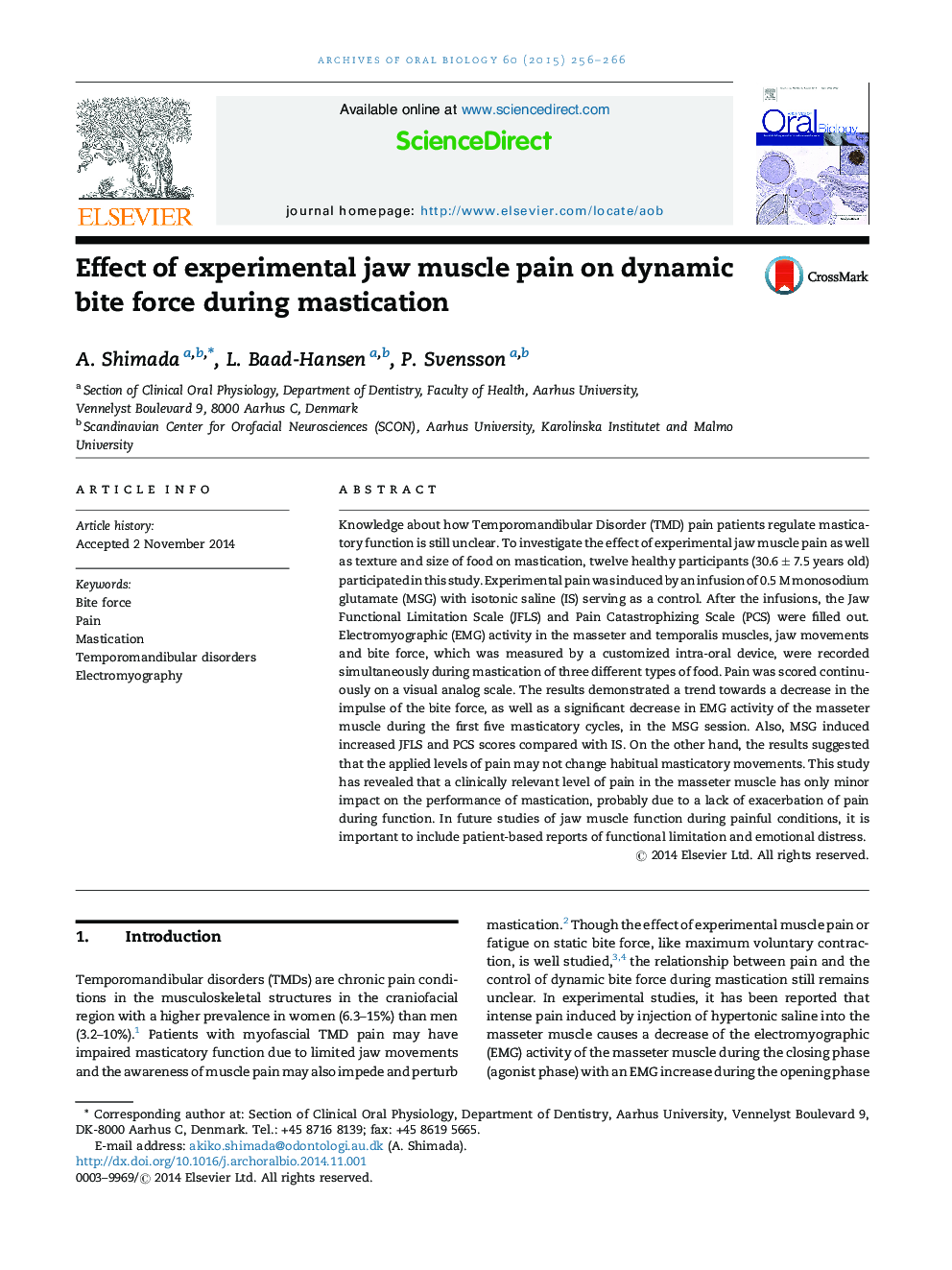| کد مقاله | کد نشریه | سال انتشار | مقاله انگلیسی | نسخه تمام متن |
|---|---|---|---|---|
| 3120832 | 1583303 | 2015 | 11 صفحه PDF | دانلود رایگان |
• Dynamic bite force was observed during painful mastication.
• Subjective limitations in function and psychological conditions are also assessed.
• Impulse of the bite force tended to decrease during painful mastication.
• Mastication can be maintained with minor compensatory changes under pain condition.
• Despite a notification of limited jaw movements, mastication could be carried out.
Knowledge about how Temporomandibular Disorder (TMD) pain patients regulate masticatory function is still unclear. To investigate the effect of experimental jaw muscle pain as well as texture and size of food on mastication, twelve healthy participants (30.6 ± 7.5 years old) participated in this study. Experimental pain was induced by an infusion of 0.5 M monosodium glutamate (MSG) with isotonic saline (IS) serving as a control. After the infusions, the Jaw Functional Limitation Scale (JFLS) and Pain Catastrophizing Scale (PCS) were filled out. Electromyographic (EMG) activity in the masseter and temporalis muscles, jaw movements and bite force, which was measured by a customized intra-oral device, were recorded simultaneously during mastication of three different types of food. Pain was scored continuously on a visual analog scale. The results demonstrated a trend towards a decrease in the impulse of the bite force, as well as a significant decrease in EMG activity of the masseter muscle during the first five masticatory cycles, in the MSG session. Also, MSG induced increased JFLS and PCS scores compared with IS. On the other hand, the results suggested that the applied levels of pain may not change habitual masticatory movements. This study has revealed that a clinically relevant level of pain in the masseter muscle has only minor impact on the performance of mastication, probably due to a lack of exacerbation of pain during function. In future studies of jaw muscle function during painful conditions, it is important to include patient-based reports of functional limitation and emotional distress.
Journal: Archives of Oral Biology - Volume 60, Issue 2, February 2015, Pages 256–266
